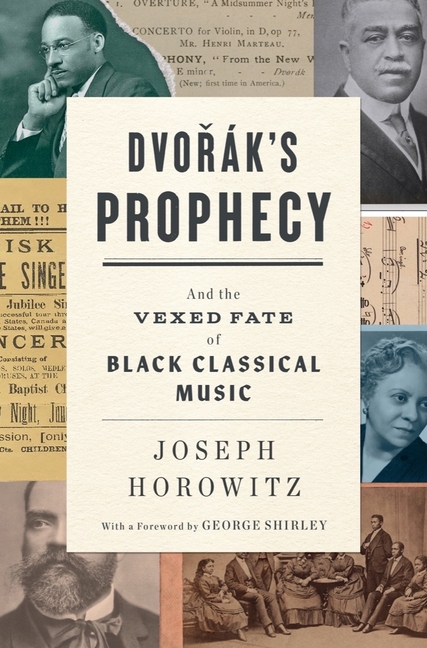... it mostly appeals to aesthetic and historical debates about the meaning of 'Black classical music,' resulting in the glaring omission of racism as a structural force with profound effects for individuals ... Despite Horowitz’s earlier attention to an excessive devotion to masterworks, Dvořák’s Prophecy often reads as a jeremiad on the rapidly fading relevance of singular grand narratives ... Much of Dvořák’s Prophecy offers breezy reflections on various Gilded Age touchstones ... In an obvious oversight, Horowitz’s loose conflation of Eurocentrism with whiteness and Americanism with Blackness doesn’t account for racist double standards routinely applied to African American musicians ... Horowitz’s failure to account for these more subtle dimensions of racism aren’t born of ignorance: he excuses himself from doing so with a highly selective use of evidence ... Horowitz’s nonchalance, rooted in meager evidence, severely injures his credibility as an interpreter of racial history ... Horowitz transforms Blackness into an abstract aesthetic category divorced from human bodies ... Horowitz, in short, is simply out of his depth when discussing interracial cultural exchanges ... Ultimately, Dvořák’s Prophecy thus wraps its author’s artistic tastes in an old, loose-fitting historical costume now slightly more tailored to racial concerns.
Read Full Review >>

